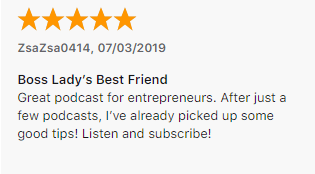The Fast-Track Woman Podcast: Episode #53
Building a Legacy Brand with Tiffany Neuman
Click the Play Button + Listen Below.
Meet Podcast Guest, Tiffany Neuman.
Tiffany Neuman is a visionary branding strategist who helps highly-motivated entrepreneurs and influencers up-level their businesses. After 15 years in the corporate world, working with brands like FedEx, Stoli Vodka and Burt’s Bees, she left to establish a revolutionary branding business that stays one step ahead of trends. Tiffany now works with clients across the globe to help them 10x their sales and shine even brighter in their niches.

About this Podcast Episode.

In this episode, Terra Bohlmann interviews Visionary Brand Strategist, Tiffany Neuman, who helps highly-motivated entrepreneurs and influencers up-level their businesses. After 15 years in the corporate world, working with brands like FedEx, Stoli Vodka, and Burt’s Bees, she left to establish a revolutionary branding business that stays one step ahead of trends. Tiffany now works with clients across the globe to help them 10x their sales and shine even brighter in their niches. Terra and Tiffany discuss the concept of Conscious Branding and why developing a Legacy Brand is key for long term growth in your business.
Resources, Tools, and Links Mentioned in this Episode.
- tiffanyneuman.com
- TerraBohlmann.com/podcast
- Apply for your complimentary Fast-Track Session with Terra HERE.
Read and Download the Transcript for this Episode.
Interact More with the Podcast.
Great Reviews Make My Heart Sing.

Much appreciation from one happy Podcast Host!
Are you subscribed to my podcast?
If you’re not, you should subscribe so you never miss an episode.
And...I invite you to take it a step further + leave a 5-Star review.
To give a review, click the image and select “Ratings and Reviews” and “Write a Review” on iTunes.
Share a takeaway what you learned and let other women entrepreneurs know why they should listen to the podcast.
Reviews help other women entrepreneurs find my podcast and I truly enjoy reading them.
It takes a community of like-minded women to help other like-minded women succeed.
(Oh, by the way, I love to do shout-outs on future episodes and you just may hear your name!)



